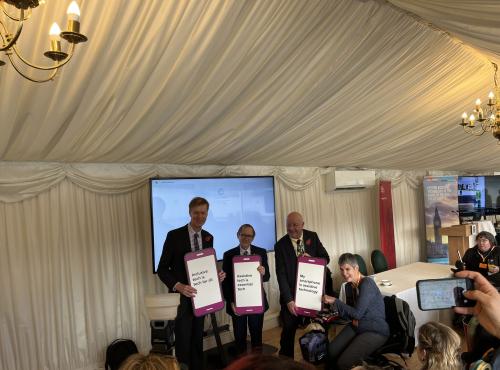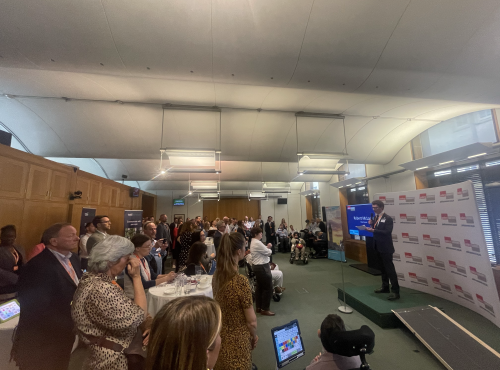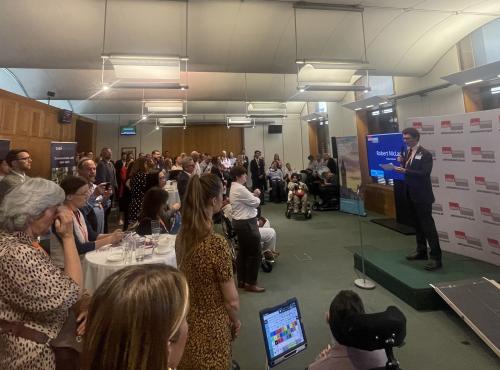Realising the benefits of technology in Supported Employment
We are pleased to announce that the All-Party Parliamentary Group for Assistive Technology will begin an inquiry into the use of technology in Supported Employment.
Supported Employment is a personalised model for supporting disabled people and other disadvantaged groups to secure and retain employment.
We know that short-term work placements such as Supported Internships, traineeships and apprenticeships can help disabled people to achieve sustainable and paid employment. The model has support from policymakers, with the Government launching a scheme to double the number of Supported Internships in England by 2025, and a further £10.8 million scheme to incentivise local authorities to provide Supported Employment.
Technology, combined with human support, can help disabled talent to succeed by breaking down barriers at work. For example, a phone app could be used to take a photo of a form or a label which could then read text out loud – helpful for some people who are neurodiverse, have a visual impairment, or speak English as an additional language.
In 2022, the Department for Education (DfE) launched the Internships Work programme to double supported internship provision in England, helping 4500 young adults per year by 2025. In 2023, the DfE published a SEND and Alternative Provision Improvement Plan to improve the quality of provision young people with SEND receive. As the Supported Employment sector moves to scale up and improve the quality of services, there is an opportunity to realise the accessibility benefits of technology in these placements.
The report will explore how policymakers can scale Supported Employment and improve outcomes by mainstreaming the use of technology by disabled people in these roles. However, many people in Supported Employment still do not have access and support to use technology that could benefit them.
The report will consider the experiences of disabled people, employers and those working in the Supported Employment sector to access and use technology in Supported Employment. The report will be led by Policy and Research Manager (Assistive and Accessible Technology), Shamima Akhtar.
‘’I know first-hand about the benefits of using assistive technology at work. As a visually impaired person, I use screen readers and dictation software on my phone and laptop to manage eye fatigue and as a productivity tool. Many people in Supported Employment have low awareness about how to access and use technology, as well as the benefits it can bring to them. I am delighted to be working on this report, so that more disabled people can break down barriers at work by realising the accessibility benefits that technology can bring to them.’’
If you would like to get involved, please contact Shamima at Shamima.Akhtar [at] policyconnect.org.uk (Shamima[dot]Akhtar[at]policyconnect[dot]org[dot]uk)



